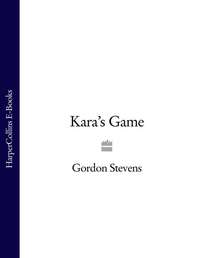
Полная версия
Provo
... she was fourteen, tall and thin yet becoming attractive, even in school uniform. She had forgotten a hockey boot – had thought she had packed both – and run home to pick it up. The day before she had brought home her school report, the evening before she had sat in the warmth of the sitting-room, the fire blazing in the grate, while her father read carefully through it in the manner she called his solicitor’s style, her mother opposite her dwelling on every nod of his head. Grade 1 in every subject, it was no more than she had expected, had worked hard for. An outstanding student, the head teacher had written; we confidently expect superb examination results and university entrance.
The house was quiet, the grandfather clock ticking in the hall. Her mother and her aunt were having tea together as they did every Wednesday. Quintessentially English, Walker would think in the years to come, when the hate was fired and burning in her. Quintessentially bloody bourgeoisie. She wouldn’t disturb them, she thought, if she did she would have to explain, then she might be late for the practice. She ran quietly up the stairs, found the boot, and began to come down again.
The sitting-room door was slightly open. Her mother was showing her aunt her school report – she could tell by the conversation.
‘She’s done very well.’
‘Very well indeed.’ There was something in her mother’s voice which took her by surprise. ‘Considering.’
She stopped unseen on the stairs and wondered what her mother meant.
Even though she thought the house was empty her mother crossed the room and closed the door.
Considering what, the girl thought that night. She had everything, her parents were well-off though perhaps slightly old-fashioned, neither she nor her brother had ever wanted for anything. They lived in a large house in the Home Counties, had been educated privately from the age of four, and always been encouraged to study. Considering what? she was still thinking when she woke the following morning . . .
. . . the coffee was cold and the study was quiet around her.
Each of the jobs she had done for Conlan, or for others through Conlan, had begun differently. Some – the longterm jobs – had started this way: the months of detailed and often fruitless research. Others had been more immediate: a dead letter drop where the weapon was waiting for her, the target details, a back-up supplying the way in and out. Always, however, Conlan had insisted on two fundamentals: that no one ever knew her identity, and that everyone assumed she was a man. As if he always had the spectacular in mind, she could not help thinking again, as if he always had her in mind for it. That was why he had not used her for two years, had allowed her to disappear into the shadows.
The afternoon drifted into evening. She left the flat and took the underground to the West End. It was eleven in the evening, the night still warm. The lights of Leicester Square and Piccadilly Circus were flashing behind her, the taxis filled with theatre-leavers and the streets busy. She left Trafalgar Square and walked through Admiralty Arch and into the Mall. The night was suddenly darker and colder and the pavements empty, only an occasional cab passing her. Six hundred yards in front of her she saw the lights of Buckingham Palace.
She would need access to the royal schedule, and one way to that was through the Wednesday List – the diary of engagements for each member of the royal family circulated by Buckingham Palace to the Newspaper Publishers Association and through the NPA to interested publications. The list, containing the skeleton of engagements for up to a year ahead and updated on a monthly and weekly basis, was sent out every Wednesday, hence its name. The PinMan operation, however, would require not just the official timetable of formal appointments where the target would be high profile and carrying massive protection, but – and more importantly – the details of the more informal and therefore probably more personal events, even though PinMan would still be accompanied by a bodyguard.
Buckingham Palace or the NPA? She was walking quickly, thinking quickly, weighing the options. If she accessed the computer system in the press office at the Palace she might also get inside the personal offices, get information not on the Wednesday List; if she made do with the NPA she might get less material but the risks were fewer. The computer security at the Palace would be more difficult to penetrate, yet in a way that did not concern her. What did, however, was the probability that at the Palace the system would, or should, pick it up immediately. And that might warn the security services.
A police car slid past her – the dark maroon of the Diplomatic Protection Group. She reached the Victoria Monument and stood looking up at the Palace, the standard fluttering from the flag pole. Queen’s in – she remembered the day she had stood here with her mother, the way her mother had pointed out the flag to her, she in her best school uniform and her brother in his school blazer.
The NPA, she decided, keep the Palace as a last resort.
She turned down Buckingham Gate and into Petty France, the Passport Office on the right and the Home Office on the left; then she cut through to the Houses of Parliament and took the underground back to Chalk Farm.
The following day she began the process of building up a computerized file on PinMan. In doing so she was governed by one simple fact of life: that despite the system of passwords and other security measures which an individual or a company might build into a system, there was no such thing as computer security.
If the police or security services ever suspected her, the first thing they would do would be to search the flat. And the first thing they would do when they saw the computer would be to call in a specialist. By using a tape streamer, DOS operating system boot disk and a programmer’s toolkit, an expert would first of all bypass the security and password system normally assigned to the C drive, access the hard disk and X-copy all information stored on it, even remnants of items which she had ordered to be deleted but which might not have been completely overwritten by the computer.
If she replaced the standard BIOS chips with chips carrying security passwords, they could replace those she had installed or circumvent them totally by taking the top off the computer, removing the hard disk, copying it, then replacing it. And if she had encrypted the material on the hard disk they would know she was hiding something and send it to the codebreakers at GCHQ.
For these reasons she would place no PinMan information on the hard disk. She would destroy all irrelevant material immediately, encrypt the material she wanted, using a standard software package, and place it on a floppy disk which she would in turn place in a bank deposit box hired under a false name.
The office was cool. She switched on the PC and checked the list of dial-up numbers she had acquired during her years in the City. Most were of banking, financial or related institutions, though four were of newspapers and the twenty-seventh was that of the Newspaper Publishers Association. She plugged the modem connection to the telephone socket, called up the communication software and keyed in the NPA number. The computer system at the NPA answered and she logged in. Eight minutes later she accessed the computer file based on the Wednesday List. On the pale amber of the screen were the outline schedules of every member of the royal family for the next twelve months, with the first six months of that period already highly detailed. She transferred the material from the NPA machine to her own and copied it on to a disk. Then she exited the NPA system, made herself a coffee, printed out the material and studied it.
The material was as she had suspected – useful but only as a starting point. Nowhere in it were the seemingly minor details, the unofficial functions or personal timetables, which she would need for the PinMan operation.
She burned the print-out and placed the floppy in the wall safe. The next morning she deposited it in a security box at a bank in the City, then returned to the flat, wrote out a list of publishers, and made the first telephone call. Two days later she entered the details of all books written about the royal family over the previous five years on the PinMan file, again placing the floppy in the bank deposit box.
Three of the books were out of print, two could be purchased over the counter, and five could be ordered, though the waiting time was up to five weeks. The following morning she went to the British Library, on the ground floor of the British Museum in Great Russell Street, and obtained a reader’s pass in the name of Sampson, her application authenticated by a letter on University College headed notepaper which she herself had printed and on which she had written details of a fictitious PhD thesis. For the next ten days, in the vast domed reading room of the British Library, she worked her way through the books she had listed from the publishers’ catalogues.
The following week she spent five days at the Press Association in Fleet Street, tucked into a corner in the newspaper cuttings library, again using the name Sampson and paying cash. On the first morning she asked for files on environmental pollution, with special reference to interest in the subject shown by the Prince of Wales; at the end of the morning she moved on to royal cuttings in general, taking the relevant folders from the filing cabinets herself and returning them once she had finished, so that there was no record of herself or which files she had consulted. The following week she spent four days in the British Newspaper Library at Colindale in north London.
The photograph was in the diary column of the Daily Mail.
Perhaps it was because she was concentrating on the content of the various reports, perhaps because the report in question was about a lunch party and therefore of little consequence, perhaps because the cutting at the Press Association library was slightly torn or the microfiche machine at Colindale was slightly out of focus, that she did not register it. It was only three evenings later that the feeling began to seep into her that sometime, somewhere, over the past days and weeks, she had missed something. Not something important, not something she could have used. And that was what annoyed her. Because not only could she not remember what she had seen or where she had seen it, but she did not even know why she should have noticed it or why it was surfacing from somewhere in her subconscious.
For the two weeks after that she concentrated on European and American magazines and newspapers specializing in scandal stories about the royal family. In each case the stories were more sensational, and less likely to be corroborated, than in the British newspapers, and the photographs were more intimate, or at least more intrusive.
September had slipped into October, and soon October would give way to November. Somewhere in the mass of information she had gathered together was the key to PinMan, she was aware; somewhere among what seemed like an industry in itself was the one person who could give her that key. Except that already she was running out of time.
Something she had seen in one of the photographs at the Press Association or at Colindale – perhaps she had been aware of the unease before, perhaps she had pushed it aside. Now it crept up on her again, only caught her because something deep in her psychology allowed it to. Not something about PinMan. Something about herself.
It was nine o’clock. She went into the lounge and switched on the television.
The Sun received the tip-off shortly before seven. Something important had happened in the life of the Princess of Wales, the source said; the previous evening she had toasted the news with close friends at one of her favourite restaurants.
‘What news?’ the deputy editor asked.
‘The source wasn’t sure.’
‘How reliable’s the source?’
On the fringe but reliable in the past, the reporter who had taken the call informed him. Offering the story on an exclusive basis but needing an answer fast. Or she would take it to another newspaper, the implication was clear.
‘You’ve talked to the Palace?’
‘They’re making no comment.’
They wouldn’t, unless you asked something specific, the deputy editor understood, and even then they normally didn’t comment anyway. The story was weak – in a way it wasn’t a story. Except that it might be, and someone else might have it. The editor was in Australia and the paper’s royal-watcher was on holiday somewhere in the Far East. Buy the woman up and close the source, he thought, except that if she knew, then someone else probably did as well. And if another paper knew, they’d be running it that night.
‘How much is she asking?’
‘Five hundred.’
Go with it and she was right, and all he’d get was a pat on the back. Not go with it and somebody else had it, and his feet wouldn’t touch the ground.
‘Offer her one, the rest on results.’
‘She’ll take two-fifty.’
‘Done. Guaranteed exclusive. How’re you writing it?’
‘I’m not sure.’
‘Write it as a question. Expectations of major changes, speculation amongst close friends, etc. Pull in an astrologer, get him to confirm it in her stars. Last night’s celebration in the third paragraph.’
That way he and the paper were covered. If there was a story. A bomb up every other paper’s backside if there wasn’t. And the classic spoiler if there was and someone else had it. And royal stories still moved copies, he could imagine the panic when the second edition came out, the rumours that would start in the other newsrooms even before that.
He rolled up his sleeves and telephoned the lawyer and picture editor in that order.
The story – or the first hint of it – broke at twenty minutes to nine. An hour earlier Patrick Saunders had returned to the flat which he used during the week. Saunders was 44 years old, fit for his age and occupation, married with two teenage girls, a country house in Wiltshire and a town flat in Barnsbury. He had joined the Daily Mirror seventeen years before, and was now what the newspaper liked to call the king of the royal-watchers.
The Cellnet, he noted as the telephone rang; the office getting hold of him in a hurry, not knowing where he was or having the time to find out.
‘Yes.’
‘Pat.’ Only the news editor was allowed to call him Pat, and then only when he was in a hurry and the pressure was on. ‘Big one breaking. A cab will collect you in two minutes.’
‘What is it?’
‘The Sun’s> carrying an exclusive on Di. We’ve just had the tip.’
Saunders’s first reaction was shock and his second was a combination of disbelief and anger. So what was it, why didn’t he know? Why hadn’t his source given him the story first? His third, which over-ruled the others, was of self-preservation.
‘You’re sure?’
‘We haven’t seen it yet, but they’re putting on extra copies.’
‘You don’t know what it is?’
‘No.’
‘On my way.’
He left the flat and ran down the stairs. The minicab was waiting. For Christ’s sake be there, he thought. He sat in the back seat, balanced his notebook on his lap and dialled the number on the Cellnet. The contact answered immediately.
‘Patrick here. Bit of a panic on.’ There was no time for pleasantries. ‘The Sun’s carrying a big story on Di.’
The contact began to laugh. ‘Red faces all round, eh?’
Bastard, thought Saunders.
‘Wrong Di, old man. One of the Princess’s buddies, sort of lady-in-waiting, if you like. Just announced she’s pregnant for the first time.’
‘What about the Princess of Wales?’
‘She’s agreed to be godmother.’
You’re sure? Saunders almost blurted. Head on the block time, he knew. Of course I’m sure, he knew the contact would reply. ‘Phone number?’
‘She’s ex-D.’
All of them were ex-directory, Saunders thought.
‘Doesn’t matter, though. She’s not there.’
Stop pissing me about, Saunders glanced up as the minicab passed the Angel.
‘She’s with her parents.’ The contact gave him the number. ‘Old man’s in Who’s Who, that’s where you got it, yah?’
‘Yah.’ Saunders clipped the cassette recorder on to the Cellnet and dialled the number the source had given him. The woman who answered sounded in her fifties, her voice pure Roedean.
‘Mrs Wickham. This is Patrick Saunders.’ He did not say he was from the Mirror. Some people would pay to get their names in the gossip columns of the Mail or Express; the same people, however, might consider the Mirror slightly the wrong colour and class. ‘I wrote a small piece about Diana’s marriage and wanted to congratulate her on the good news.’
Hope to Christ she is married, he thought.
‘How nice. Would you like to speak to her?’
‘If it’s not too much trouble.’
Saunders heard the scuffle as the daughter picked up the telephone.
‘Diana. Patrick Saunders from the Mirror. Sorry to trouble you, but you know what Fleet Street’s like when a pretty girl has a baby.’
She knew the score, he guessed. Especially if she was a member of Princess Di’s set. The woman laughed and he knew he’d won. For two minutes they talked about what she wanted, boy or girl, as well as details of her and her husband.
‘Just a word of warning.’ He slipped it in quietly, almost casually. ‘I know you’re a close friend of a certain other Di. Some people think it’s the Princess who’s got some big news coming.’
‘How silly.’ It was almost a laugh.
‘But she knows?’
‘Of course, we had a celebration last night.’
‘Champagne?’
‘Of course.’
‘Any chance of Di being godmother?’
The woman laughed again.
They talked until the minicab stopped outside the Mirror building. Saunders thanked her, made a note to send her a large bouquet of flowers in the morning, entered the telephone number into the computer notebook, ran inside and took the lift to the newsroom. Just in time for the second edition, he thought.
The editor, night editor, news editor and lawyer were looking at the television screen, the Nine O’Clock News just starting.
‘Photo of Diana Simpson, daughter of Brigadier and Mrs Wickham,’ he told the pictures editor. ‘Make it a happy one. Second picture of her with the Princess of Wales.’
He switched on the computer. The editor and news editor were behind him, the editor sweating slightly and the deputy fiddling with his braces. He ignored them and swore at the system to power up.
BBC running the story, the news editor shouted to him. The Palace are making no comment. Just what he wanted, he thought: everyone carrying the story and the silence from the Palace only fuelling the bonfire. His fingers were already on the keyboard.
The Princess of Wales is to become a godmother.
If it’s a boy he will be called Michael James. If it’s a girl she will be called Elizabeth Althea. And last night Kensington Palace was celebrating the good news.
Behind him Saunders felt the editor punch the air with a mixture of triumph and relief.
The evening was dark and cold, threatening rain. Walker told the cab driver to drop her by Chancery Lane, then walked briskly along Holborn. She was wearing what some might call her City clothes and carried a briefcase. The building which housed the Mirror Group of Newspapers was on the corner of Holborn Circus, the concrete and glass dominating the area, the main reception in front and the garage and works entrance in New Fetter Lane behind. In the daytime the lorries bringing the rolls of paper crowded the street, in the evenings the delivery vans lined the pavement waiting for the first edition.
There were two other features of New Fetter Lane which concerned Philipa Walker that evening. The first was the faded brick building, five hundred yards from the Mirror, which housed the headquarters of Her Majesty’s Customs and Excise. The second was the White Hart public house opposite the rear entrance to the Mirror and known to its journalists as the Stab (short for The Stab in the Back).
The White Hart was quiet, the slack period after the City stockbrokers and money men left and before the journalists arrived. She ordered a gin and tonic, settled in a corner with a copy of The Times, and waited. It was the third time she had been there; on the previous two occasions the intermediary she had chosen had not come in. A first group of reporters arrived, then a second, the woman among them. She was smartly dressed though older than her photograph. After fifteen minutes the woman rose, asked the men she was with what they wanted to drink, and went to the bar. Walker finished her gin and tonic and followed her.
‘Anything in tomorrow?’ She stood next to the woman. Anything in tomorrow’s paper, she meant.
The journalist turned.
‘Helen Kennedy, aren’t you?’ It was both an explanation and the beginning of an introduction. ‘Recognized you from your photograph.’
The woman laughed. ‘Who are you with?’
‘Which paper, you mean? I’m not.’ She asked the second barman for a gin and tonic. ‘Systems analyst consultant. Doing a job at Customs and Excise. Funny bunch, the Investigations lot.’
The journalist picked up the possibility of a contact. ‘You by yourself ?’
Walker nodded.
‘Why don’t you join us?’
An hour later Walker accepted Kennedy’s invitation to join her for dinner at Joe Allen’s, off Covent Garden. A table had already been booked, Kennedy explained, some other colleagues were already there. When they arrived the restaurant was crowded and the target was standing by the bar.
There were twenty-three names of journalists, magazine writers and authors on the list she had compiled, each of them a possible way in to PinMan. Four nights before, however, only one of them had got it right.
‘Patrick Saunders, Philipa Walker.’
Access Saunders and she might access Saunders’s sources. Access Saunders’s sources and she might access the private worlds of the Prince and Princess of Wales. Access those worlds and she accessed PinMan.
‘Should I bow or curtsey?’ Walker’s question was tongue-in-cheek and slightly challenging.
Saunders smiled as she knew he would. ‘Bucks Fizz?’
‘Why not?’
* * *
Belfast was quiet.
Nolan turned the unmarked car along Springfield Avenue – RPG Avenue as the locals nicknamed it. The Browning was in her waist holster and the MP5K was on the floor to the right of the driver’s seat.
Work since the operation at Beechwood Street had been routine and on a downward spiral. Partly because after Beechwood Street everything seemed an anticlimax; mainly because she was winding down to the end of her Belfast tour. Not just her Belfast tour. Her last tour. She had already bent the rules, or persuaded others to bend them for her, so that she could stay on. Now London had decreed otherwise, had said that today was her last undercover day in Northern Ireland. Two weeks’ leave, then they would pull her out.
There was something about the operation on Beechwood Street – occasionally the unease seeped through the block she had put on it, occasionally she found herself back there with McKendrick by the driver’s door and Rorke in front. Mostly at night, when she was alone and trying to sleep, but occasionally even when she was working, when she was in the undercover car, particularly when they were ordered into the Ballymurphy area. Now it crept up on her again, black and cold, like a fog on the moors on a summer’s day. One moment the sky was blue and warm, then the faintest strand of mist and the almost imperceptible finger of cold. Then it was upon you, engulfing and entrapping you.
She turned the car south and fought off the feeling.
‘There’s a rumour you’re leaving as well.’ She glanced across at Brady. Only once had they talked about what she had had to do in the car in Beechwood Street, and that was to invent a story which would explain how she was able to reach his Browning. Then they had agreed never to mention it again. And Brady had told no one. Because at the end of the day there were a lot of things more important than a laugh between the boys, and at the top of that list was the fact that she had saved their lives.





